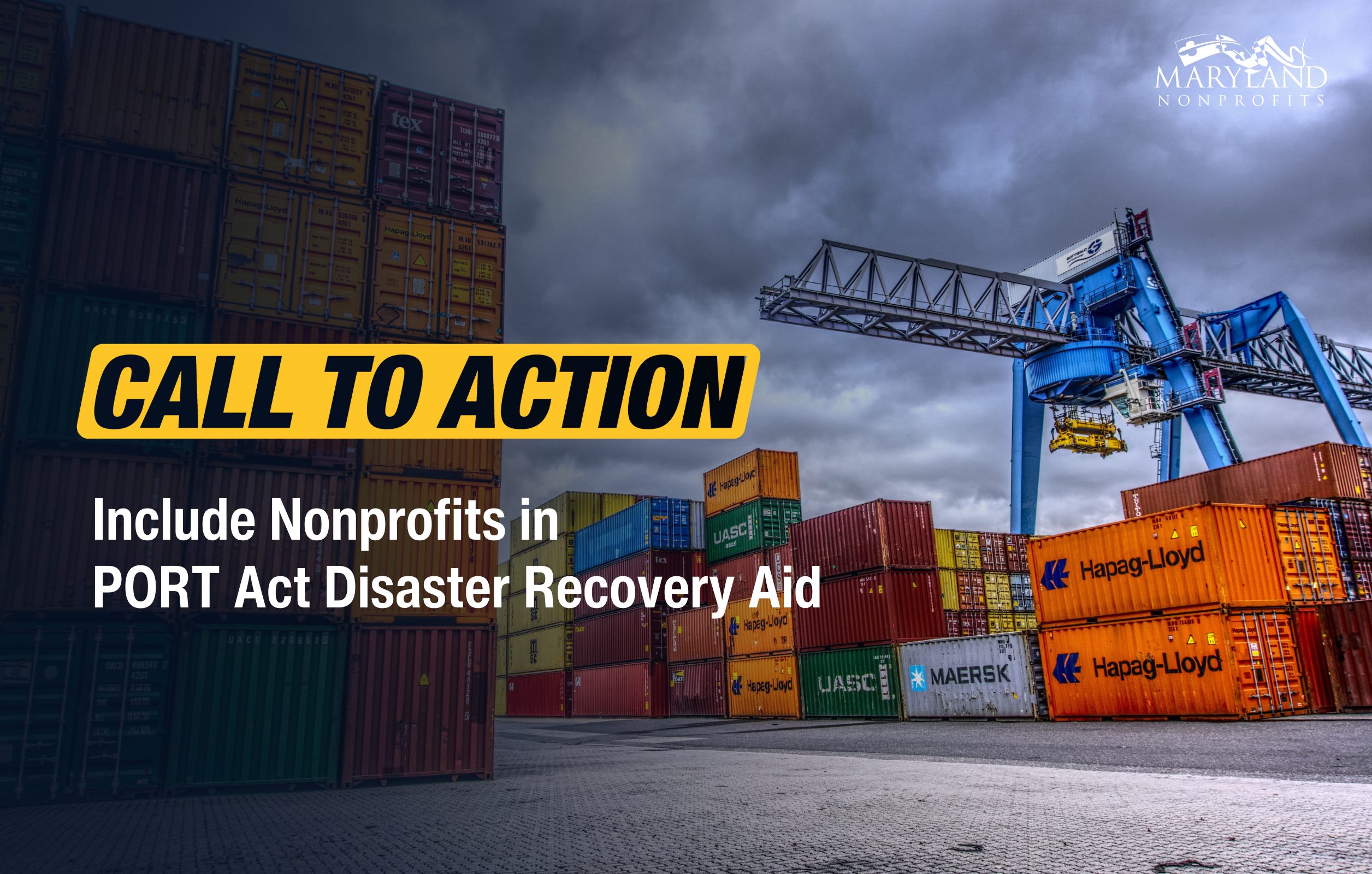Immediate Call: Include Nonprofits in PORT Act Disaster Recovery Aid

By Conner Wolfe, Executive Office Manager
The recent collapse of the Francis Scott Key Bridge in Baltimore has inflicted a devastating blow, not only resulting in the loss of lives but also laying bare the vulnerabilities of communities already grappling with systemic challenges.
While legislative strides such as the Maryland Protecting Opportunities and Regional Trade (PORT) Act (SB1188/HB1526) have been initiated to mitigate the immediate financial repercussions, the stark reality remains that numerous vulnerable communities continue to reel under the profound impacts of this disaster.
From lower-income families to communities of color and immigrants, the economic and human toll is staggering, casting a long shadow of uncertainty over their livelihoods. Nonprofits are businesses that, positioned as “boots on the ground”, have immediately stepped in to support the affected communities, demonstrating their critical role in disaster response and recovery efforts.
They provide essential services such as food assistance, housing support, counseling, and job placement assistance. Yet, the PORT Act overlooks the significant burden placed on these nonprofits, which are now tasked with meeting an escalating demand for their services without adequate financial support. This scenario has particularly impacted non-English speaking communities, underscoring the importance of language justice and the need for culturally tailored services to ensure effective support for all affected individuals.
The collapse of the Key Bridge underscores the urgent need for systemic changes and equitable support mechanisms. Communities that were already marginalized and underserved are now bearing the brunt of this disaster. The disruption of transportation routes impacts access to essential services such as healthcare, education, and employment opportunities. For residents of these communities, already facing barriers to resources and opportunities, the collapse exacerbates existing challenges and deepens disparities.
Moreover, the conversation around the bridge collapse has brought to light specific challenges faced by workers who, due to their immigration status, might be unable to access unemployment benefits. This highlights the necessity of advocating for policy changes to support all workers, irrespective of their status, which is crucial in the context of disaster response and recovery. Additionally, the focus on mental health needs for affected individuals and the staff and volunteers of nonprofits emphasizes the significance of addressing compassion fatigue and the emotional exhaustion of helping professionals. This underlines the importance of self-care and mental health support for those providing aid.
In the wake of this tragedy, it is crucial for policymakers to recognize and address the challenges faced by nonprofits in providing support to affected communities. While the PORT Act focuses on financial assistance for workers and businesses directly tied to port operations, it fails to acknowledge the critical role of nonprofits in disaster response and recovery. By ensuring that relief programs encompass the needs of nonprofits serving vulnerable communities, policymakers can better address the immediate and long-term impacts of the bridge collapse and support comprehensive recovery efforts that leave no one behind.
As we navigate the aftermath of the Francis Scott Key Bridge collapse, it is imperative that we recognize the indispensable role of nonprofit organizations in supporting our communities during times of crisis. While legislative efforts like the PORT Act aim to provide relief, it is evident that more needs to be done to address the holistic needs of affected individuals and families, especially those from marginalized communities.
We urge legislative leaders and the Moore Administration to acknowledge the vital role of nonprofits and provide the necessary financial assistance to ensure they can continue their crucial work in supporting families and communities through this challenging time. Together, let us advocate for equitable support measures that leave no one behind.
Take action now by urging legislative leaders and the Moore Administration to support nonprofits in their vital mission by clicking here.

